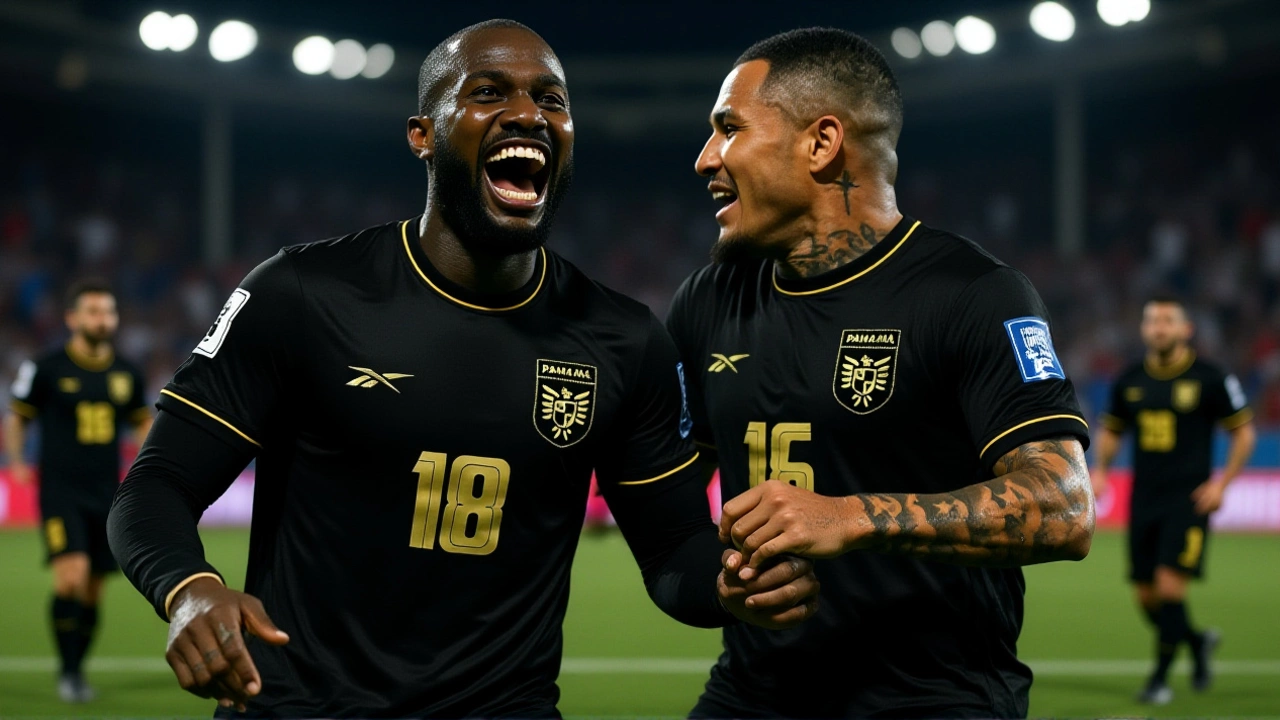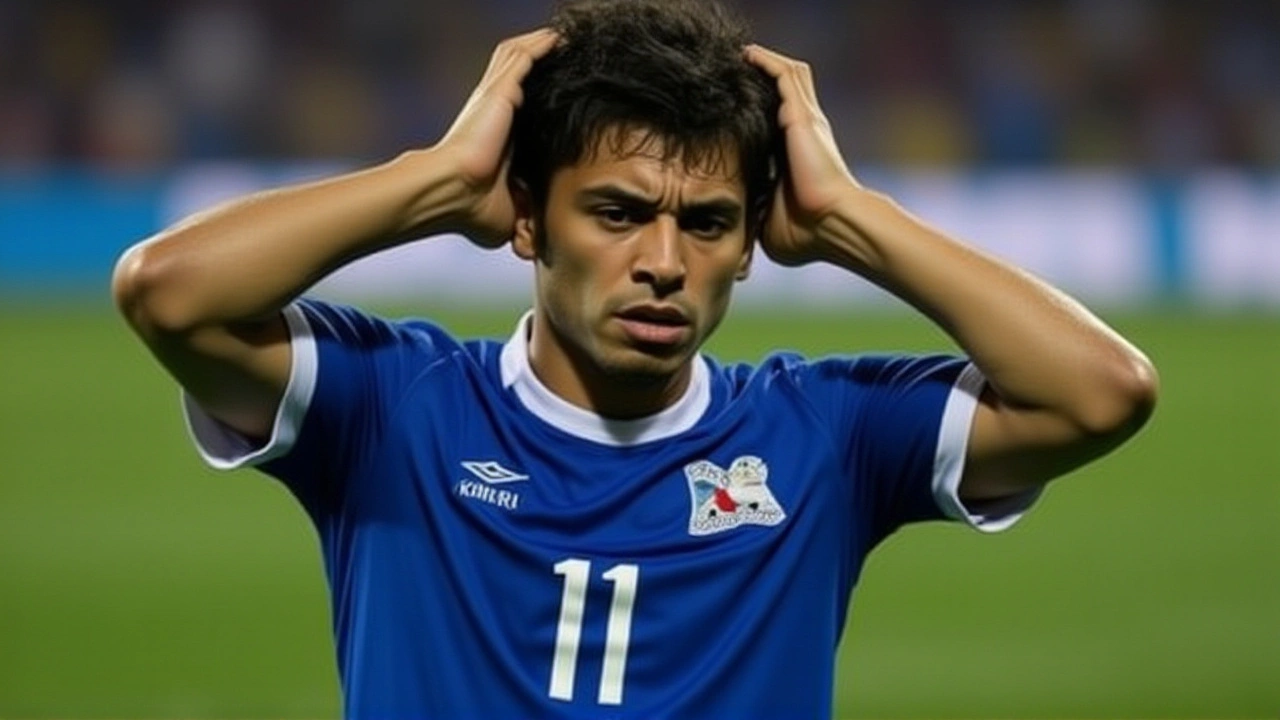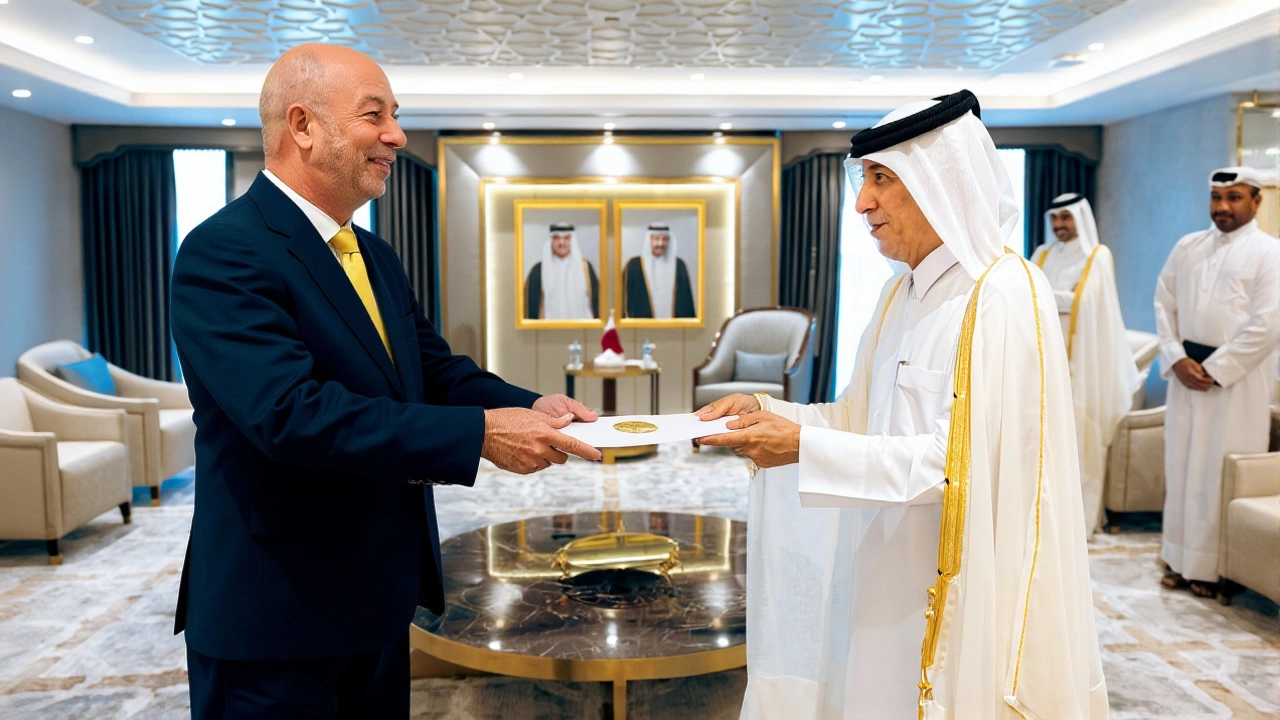On November 25, 2024, Sultan bin Saad Al Muraikhi, Minister of State for Foreign Affairs of the State of Qatar, received copies of credentials from three newly appointed ambassadors at the Ministry of Foreign Affairs headquarters in Doha. The ambassadors — His Excellency Milton Eduardo Omana Acevedo of El Salvador, His Excellency Johnny Mayani of Panama, and the unnamed ambassador of Cuba — were there not for the final ceremony, but for the essential first step: verifying their official documents before presenting them to the Amir of Qatar, Sheikh Tamim bin Hamad Al Thani.
Protocol Before the Grand Stage
This isn’t just paperwork. It’s centuries-old diplomacy in motion. Under the Vienna Convention on Diplomatic Relations of 1961, no ambassador can officially begin duties until their credentials are formally accepted by the head of state. But before that grand moment — often televised, with ceremonial uniforms and palace halls — there’s a quiet, meticulous process. The Ministry of Foreign Affairs checks every signature, seal, and translation. They confirm the ambassador’s appointment was properly authorized by their home government. Only then is the ambassador cleared for the final presentation.
That final moment came on January 26, 2025, when Sheikh Tamim bin Hamad Al Thani received the full credentials of seven new ambassadors at the Amiri Diwan Office in Doha. The list included Omana Acevedo, Mayani, and the Cuban envoy — now officially recognized, now fully empowered to represent their nations in Qatar.
Why These Three Nations Matter
At first glance, El Salvador, Panama, and Cuba might seem far from Qatar’s traditional diplomatic orbit. But this isn’t random. It’s strategic. Qatar has spent the past decade quietly expanding its influence beyond the Gulf, cultivating ties in Latin America, Africa, and Southeast Asia. In 2023, Qatar opened its first embassy in El Salvador. In 2022, it signed a bilateral trade agreement with Panama focused on logistics and energy. Cuba, long isolated by Western sanctions, has found in Qatar a neutral broker — a country that engages with everyone, from Tehran to Washington.
“These aren’t just symbolic gestures,” said a senior diplomat familiar with the process, speaking anonymously. “When Qatar receives an ambassador from a country that’s been under international pressure, it sends a signal: we’re building bridges, not walls.”

The Missing Name and the Diplomatic Shadow
Oddly, the Cuban ambassador’s full name was never published in the November 2024 announcement. That’s unusual. Most countries, even those with less transparent governments, release the names. Was it an oversight? Or a deliberate delay? The United Nations Diplomatic List shows Ernesto Soberón Guzmán as Cuba’s Permanent Representative to the UN — but that’s a different post. The ambassador to Qatar? Still unnamed in official Qatari records. The lack of clarity doesn’t undermine the legitimacy — the credentials were verified — but it does raise questions about how much transparency Qatar expects from its partners.
A Global Network in Motion
Qatar now maintains diplomatic relations with 126 countries, according to its Ministry of Foreign Affairs. That’s more than many European powers. The credentialing of these three ambassadors is one thread in a much larger tapestry. In 2024 alone, Qatar welcomed envoys from Ghana, Senegal, and the Philippines — all part of a deliberate effort to diversify alliances, reduce dependence on traditional partners, and position itself as a global mediator.
What’s striking is how this process unfolds with quiet precision. No fanfare in November. No headlines. Just a small note on the ministry’s website. Then, two months later, the grand ceremony — the Amir’s approval, the official recognition, the diplomatic seal. It’s a reminder that real power isn’t always loud. Sometimes, it’s in the signature on a piece of paper, carefully reviewed by a bureaucrat in Doha, before being presented to a monarch.

What Comes Next?
Now that the ambassadors are officially accredited, they can begin full diplomatic work: negotiating trade deals, supporting expatriate communities, and representing their countries in multilateral forums hosted by Qatar. For El Salvador, that means pushing for greater investment in infrastructure. For Panama, it’s expanding port cooperation. For Cuba, it’s seeking humanitarian and medical partnerships amid ongoing economic strain.
Qatar, meanwhile, will continue its quiet diplomacy — welcoming new envoys, hosting summits, and quietly building alliances across continents. The next batch? Likely from Africa or Southeast Asia. The pattern is clear: Qatar doesn’t just want to be a regional player. It wants to be a global connector.
Frequently Asked Questions
Why do ambassadors present credentials twice?
The first presentation — to the Foreign Minister — is a verification step to ensure the documents meet international standards under the Vienna Convention. The second, to the Head of State, is the formal act of recognition that grants full diplomatic status. It’s a legal and ceremonial two-step process that dates back centuries and remains binding under international law.
Why wasn’t the Cuban ambassador’s name released?
While uncommon, some nations delay public disclosure of ambassadorial appointments for internal political reasons. Qatar’s official announcement may have been issued before the Cuban government finalized the name for public release. The credentials were still valid and legally recognized — the omission was procedural, not substantive.
How does this affect Qatar’s relations with Latin America?
This move signals Qatar’s serious intent to deepen ties with Central America. El Salvador and Panama are key logistics hubs; Cuba offers medical expertise and political neutrality. Qatar sees these relationships as strategic counterweights to Western dominance in global institutions, allowing it to expand influence without direct confrontation.
What role does the Vienna Convention play here?
The 1961 Vienna Convention establishes the legal framework for diplomatic recognition. It mandates that credentials be presented to the Head of State for formal accreditation. Qatar’s adherence to this protocol reinforces its reputation as a rule-abiding global actor — crucial for a small nation seeking legitimacy on the world stage.
Is this part of a larger trend in Qatari foreign policy?
Absolutely. Since 2017, Qatar has aggressively diversified its diplomatic network, opening embassies in Latin America, Africa, and Asia. The goal: reduce reliance on traditional allies, create alternative trade routes, and position itself as a mediator in global conflicts — a role it’s already playing in Ukraine, Sudan, and Gaza.
When will Qatar appoint ambassadors to these countries?
Qatar has already appointed ambassadors to El Salvador and Panama. The ambassador to Cuba is expected to be named soon, likely in early 2025. The timing aligns with Qatar’s broader strategy: reciprocal representation strengthens bilateral ties and ensures balanced diplomatic engagement.
